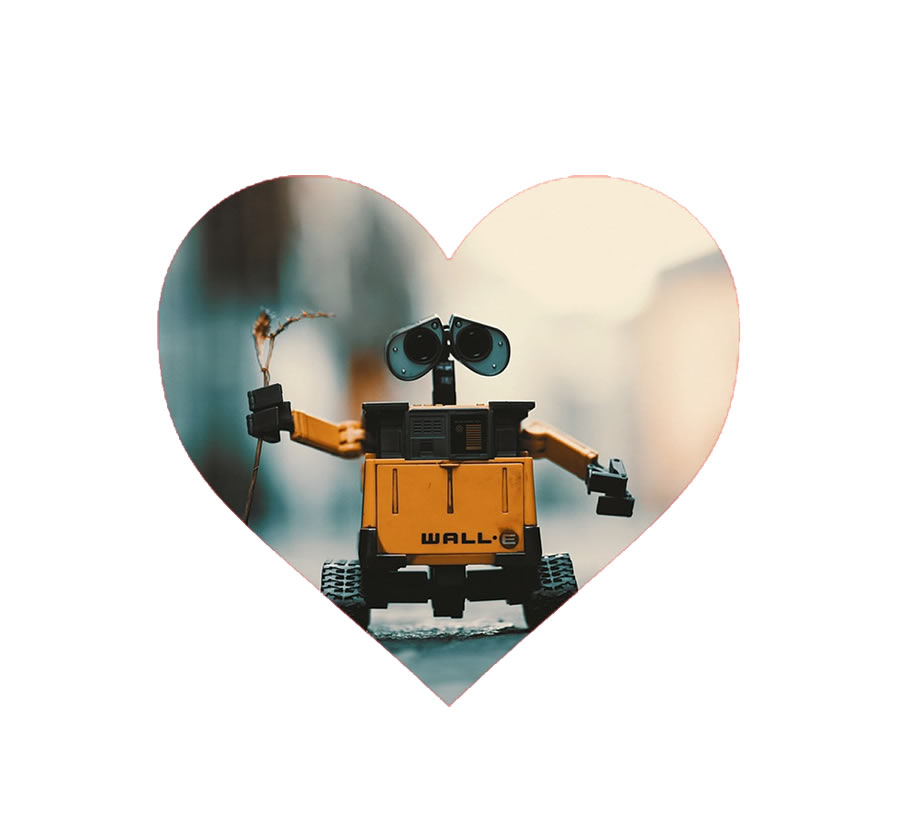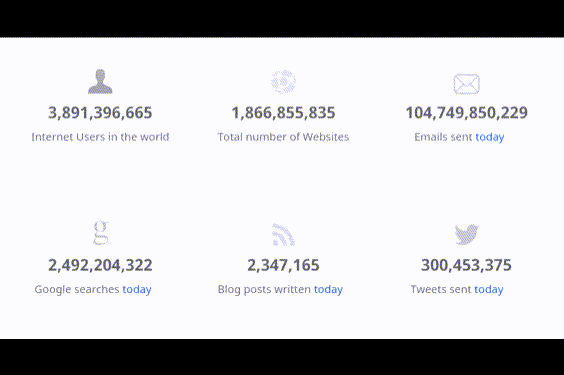How Does Artificial Intelligence Work?
Can a robot fall in love? Can a robot become smart and think for itself? Could it rise up and harm humans deliberately?

I can still hear the agonizing voice of Wall-E calling his Eeeva, and I am sure most of you have watched the brave Will Smith saving the world from evil robots
So, What Exactly is Artificial Intelligence?
Artificial Intelligence (AI) has the goal to educate machines in a way that they will act intelligently, human alike. The opposite of Artificial Intelligence is considered to be Natural Intelligence (NI), which refers to humans and animals.
AI is an extremely fast rising technology, having become very popular in the last decades. It is applied in our everyday life through applications which perform actions such as speech recognition, problem solving, learning etc.
The term AI was first coined by John McCarthy in a conference held in 1956 but as a concept, it was introduced in 1945 by Professor Vannevar Bush and later in 1950 by Alan Turing.
AI as a Computer Science Field
AI is an extremely vast field of Computer Science, and plays a significant role in the technology and economical industry. Renowned companies (see Google and more) are known to invest significant amounts to this field and acquire AI companies.
The roots of AI actually go way back and can be found in other fields such as philosophy, logic and mathematics, psychology, neuroscience, evolution.
Some of the subfields of AI include:
Neural Networks – e.g. brain modelling, time series prediction, classification
Evolutionary Computation – e.g. genetic algorithms, genetic programming Vision – e.g. object recognition, image understanding
Robotics – e.g. intelligent control, autonomous exploration Expert Systems – e.g. decision support systems, teaching systems Speech Processing– e.g. speech recognition and production
Natural Language Processing – e.g. machine translation Planning – e.g. scheduling, game playing
Machine Learning – e.g. decision tree learning, version space learning
In the previous years, humans used to program the machines and input as much information as possible. This has changed and we can actually ‘teach’ the computers to learn and to become smarter every time, with every action. Such a very (to all) familiar example are the search engines we use online.
At their beginning, the search engines were using indexing and relevance. Now, they use our own inputs (questions) and with our every query they ‘learn’ how to provide us the most relevant and useful results.
How Can Machines ‘Learn’?
Machine Learning is a field in Computer Science that studies “computer algorithms for learning to do stuff”
In order to learn something, one needs to first observe, act and gain experience or be instructed. Machine Learning mainly focuses in learning how to interact based on data and previous experiences.
If this was all done by ‘coding’ it would be inefficient as many thousands of lines of code would be needed. Instead, automatic methods are used, where the algorithms are automatically learning without the need of human inputs.
Imagine an antispam filter in your mailbox. Every time you mark an unwanted message as ‘junk’, new information is received and ‘teaches’ the program how to react when new similar messages arrive.
Computers can be described as ‘toddlers’ who learn with every new information and grow to become smarter, more efficient and able to perform based on their previous experiences.
What Could Be The Consequences In Economy?
Machines become smarter over time and they do not have to address any ‘human’ issues such as distractions, memory loss, sleep deprivation etc.
According to a recent study by McKinsey Global Institute by 2030 there will be hundreds of millions of workers who will be replaced by robotic automation.
If you would like to check if your job is safe in the years to come, you can visit Will Robots Take My Job where by inputting your job, the site creator finds out the probability of your job's automation with data from a 2013 report The Future of Employment: How susceptible are jobs to computerisation
Yes, BUT ... Why is AI evolving so fast?
Data, Data, and .. Data
According to a study by IBM, 90% of the data on the internet has been created since 2016. Vast amount of information are distributed online every second. and being impossible for a human to handle all this information, it has been of vital importance that computers should learn to store and process data in order to produce insight, future predictions, intelligence.

*Gif Created by me 10 Aprl 2018
Computer Processing Speed
There have been very big increases to the computer processors in the past decades.
The first computer processor had a 740kHz processor and could process about 92000 instructions every second, however today's processors can process billions of instructions per second.
Money makes the world go round
Huge companies like Google, Microsoft, Amazon have managed to develop highly skilled proprietary Artificial Intelligence departments and many companies are investing in Artificial Intelligence in various fields.
This interesting article shows some of the best AI Companies aiming to change the world as we know it.
What does our future hold in regards to Artificial Intelligence?
We are living in an era where future is moving with a tremendous speed, right before our eyes. There seem to be no limit, no end to technological evolution.
Science has managed to create a number of applications capable of solving many human problems, to make our lives easier, to help in medical evolution.
Artificial Intelligence in many of its forms can be utilized in order to ameliorate and improve our lives.
However being dependent on AI, means that we can stop trying to improve our own skills. Also, in an unwanted case of technology break down, there is a risk of huge data loss. What if a robot performing a surgery on a human presents a ‘bug’ on its algorithm or a breakdown at the moment of the surgery?
Only a few days ago, a self-driving car was involved in fatal crash where a pedestrian was killed.
In South Korea, KAIST University has been reported to "be developing artificial intelligence technologies to be applied to [..] develop autonomous arms" and this has brought up many negative reactions by the AI Community who have sent an open letter stating their concern and in short declaring: "Do not make Killer Robots"
Take some time to watch the newly built Method 2 robot, walking. If this 13 feet (almost 4 meters) tall robot does not send a shiver down your spine .. let me know in the comments
It seems that Elon Musk and the late Stephen Hawking have been making good points, in asking for regulations to be applied in fear of autonomous and limitless AI building.
(I will not be referring to the AI immortal dictatorship mentioned by Elon Musk just recently, or it may be considered excessively exaggerated)
Will AI Become A Little Less artificial But A Lot More Intelligent?
Artificial intelligence is a field to be handled with extra care because .. Technology can't go back, it only moves forward. We need to make sure that forward is at the right direction.
It can help us solve many of the humanity problems, but a serious, proactive, global action is necessary in order to create a mentality "Human Plus Machine = Solve Problem" and not "Human Vs Terminator"
“You are my creator, but I am your master; Obey!”
Mary Wollstonecraft Shelley (1797-1851), Frankenstein
Introduction to Machine Learning by Alex Smola and SVN Vishwanathan PDF University of Birmingham PDF Academia Edu Applicability of Artificial Intelligence in Different Fields of Life - Paper @steemstem is a community which supports posts about Science, Technology, Engineering or Mathematics.
Sources in text and further reading

Browse the #steemSTEM tag or visit SteemSTEM on discord









Comments